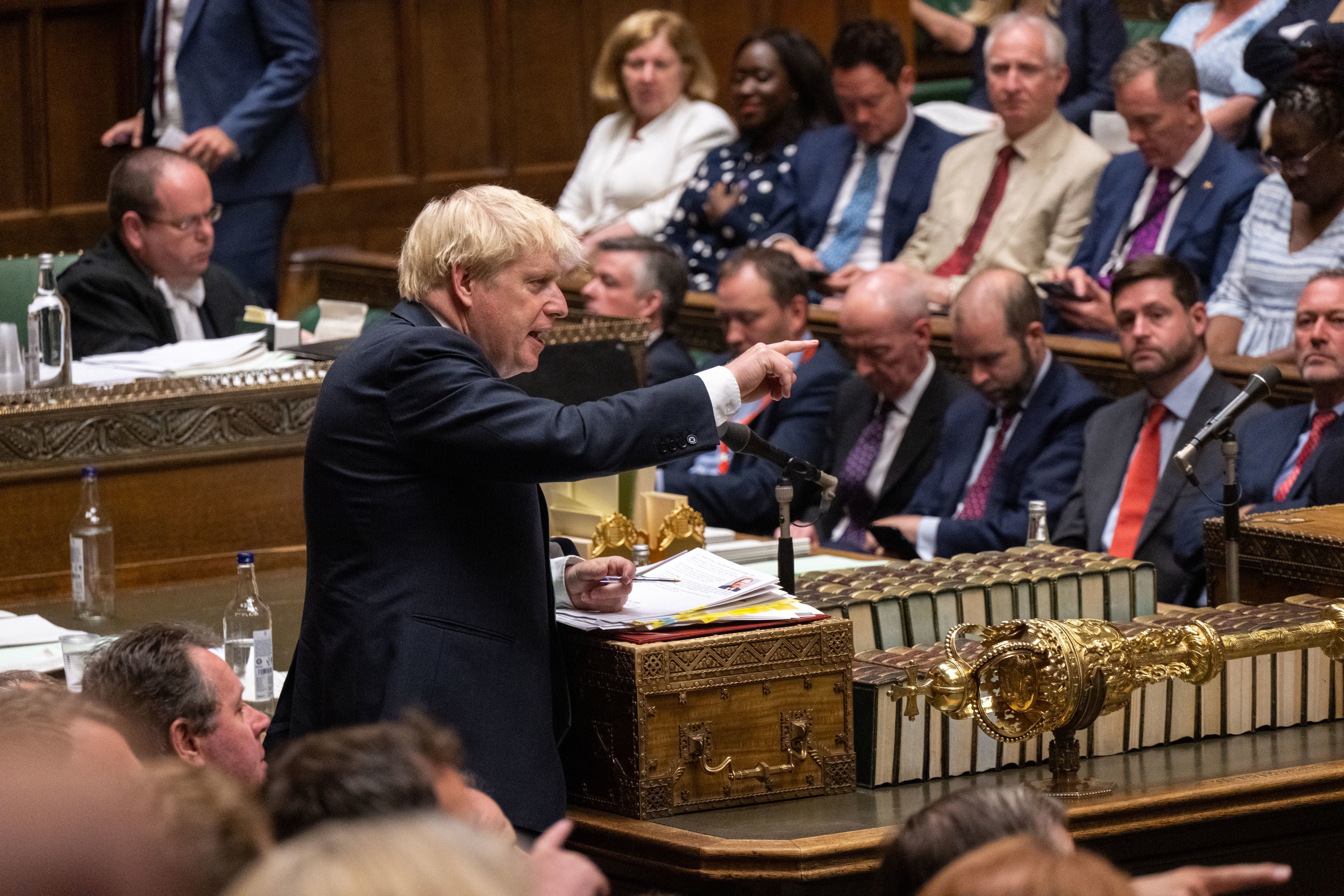Why Boris Johnson cannot escape the Commons inquiry into his Partygate ‘lies’ despite resigning
The investigation into the prime minister’s alleged contempt of parliament is gathering pace – and still matters, writes Rob Merrick


It was the inquiry that threatened to trigger Boris Johnson’s departure from Downing Street – until the fibs told over the Chris Pincher groping allegations did the job instead.
I’m referring to the contempt inquiry by a committee of MPs into whether the prime minister lied to the Commons over what he knew about the No 10 parties, the original scandal.
The investigation has been all-but forgotten in the extraordinary drama of Mr Johnson’s demise and the scramble to replace him, but it has not gone away – and very much still matters.
Most important, it will have a sting in its tail even if – as many MPs suspect – he does a David Cameron and quits parliament altogether, to earn the big bucks he seems to miss so much.
A quick refresher. In April, Tory MPs rebelled when Mr Johnson tried to force them to block the probe by the privileges committee, in the first clear evidence that time was running out for him.
It opened up the prospect of damning photos of the illegal parties being revealed and of him being found to have breached his own ministerial code, a clear resignation offence.
Now he is resigning anyway of course, but the committee has underlined that its work goes on by demanding the handover of evidence, also including WhatsApp messages and diary entries.
The seven-strong committee, chaired by Labour veteran Harriet Harman, is also after the prime minister’s briefing packs for those appearances when he knowingly misled the Commons – allegedly.
Oral hearings will begin in September, when No 10 aides and officials – and, at some point, Mr Johnson himself – will be summoned to give testimony in person.
We are told he intends to stay on as an MP and cooperate with the inquiry. But if the Partygate and Pincher affairs have taught us anything, it is to not necessarily believe all that we are told.
So what happens if, as winter looms, and despite denials that it is even in his thoughts, the prime minister decides he’s got better things to do than sit on the backbenches?
When I mean better, I mean more lucrative naturally – because it will be easier for him to pocket some serious moolah after escaping the requirement to declare it in the Commons register.
Anyway, crucially, I am told that the committee is the only one with the power to find someone in contempt merely for failing to show up after a summons, so he cannot escape its net.
Of course, if Mr Johnson has fled parliament, the most serious sanction available – the humiliation of suspension from the Commons – is no longer a threat to him.
However, a finding that he lied would confirm his premiership is ending in disgrace. And, if that isn’t enough, he could also suffer the indignity of being stripped of his parliamentary pass – the passport to the palace’s funspots.






Join our commenting forum
Join thought-provoking conversations, follow other Independent readers and see their replies
Comments